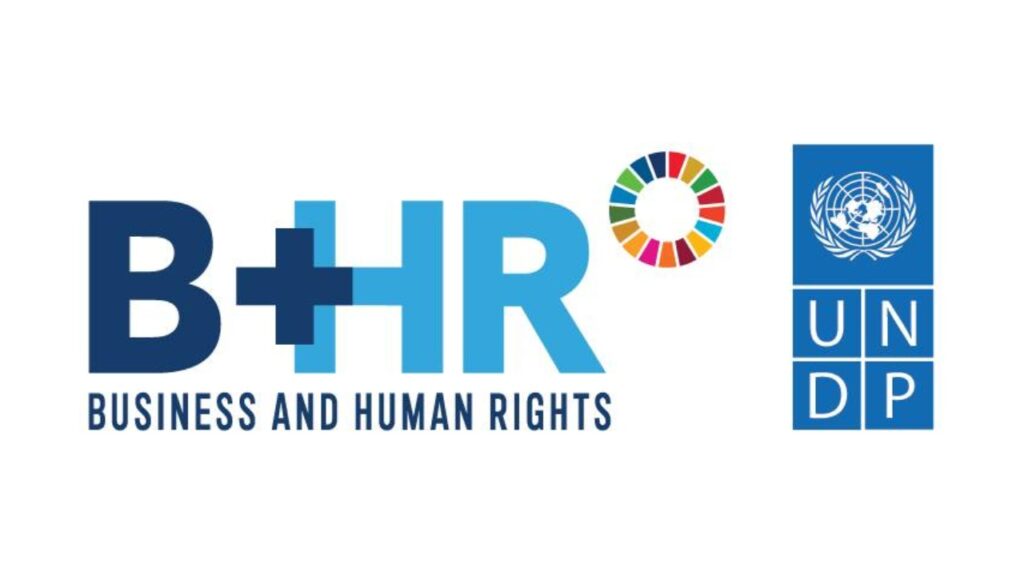Nusrat Khan currently holds the position of Business and Human Rights Specialist at the United Nations Development Programme. With a legal background and a master’s degree in Public International and Human Rights Law, she brings a wealth of expertise to her role. Previously, she contributed to UNDP’s Access to Justice program and provided consultancy services to the Ministry of Law & Justice of India as a Senior Legal Consultant, focusing on legal literacy and empowerment initiatives.
Furthermore, Nusrat has lent her skills as a Human Rights Researcher at Amnesty International and as a legal trainee with the UN International Criminal Tribunal for Rwanda. Her primary interest lies in translating human rights research and advocacy into actionable legal frameworks.
In an exclusive conversation with The Interview World, Nusrat Khan delves into the adoption of Business and Human Rights practices among Indian SMEs, the hurdles they encounter in implementing these practices, and the significance of maintaining a healthy work-life balance. Here are the key takeaways from her interview.
Q: What is the current status of Business and Human Rights practices adoption among Indian Small and Medium Enterprises (SMEs), and how does it compare to global counterparts?
A: The journey towards SMEs embracing sustainable practices unfolds gradually yet unavoidably, necessitating robust support from larger corporations. These entities, often embedded within SMEs’ supply chains, wield substantial influence and resources vital for fostering sustainable initiatives. Their role extends beyond mere participation; it entails raising awareness, providing training, and facilitating capacity building within SMEs.
As societal and investor expectations evolve, SMEs face mounting pressure to align with sustainable principles. Investors increasingly scrutinize the social and environmental impacts of their capital, compelling SMEs to acknowledge the significance of sustainability. Integrating such values into their business models becomes imperative for long-term viability and competitiveness.
Though the transition demands substantial investments, both in terms of finances and human capital, its dividends are profound. Beyond mere compliance, embracing sustainability unlocks avenues for innovation, efficiency, and resilience. Furthermore, it enhances SMEs’ access to capital and markets, positioning them favorably amidst evolving consumer preferences and regulatory landscapes.
Ultimately, while the journey may be arduous, the destination promises substantial rewards, not only in terms of financial gains but also in contributing positively to society and the environment.
Q: What additional obstacles, beyond financial and human resource constraints, do you perceive SMEs encountering in their efforts to embrace this initiative?
A: The existence of substantial gaps in information and awareness is undeniable. Bridging these divides is pivotal for progress. Civil society entities such as UNDP and UN agencies, alongside industry associations, carry a weighty responsibility in disseminating knowledge about sustainability. Their efforts are indispensable in elucidating the multifaceted nature of sustainability and its implications.
Distinguishing between theoretical and practical understandings of sustainability underscores the need for concerted action. Closing this gap is imperative. Heightened awareness not only enhances understanding but also fosters capacity development. Many sustainable practices necessitate specialized skills, which can only be acquired through targeted training initiatives.
Moreover, small and SMEs grapple with the challenges posed by information and awareness deficits. These issues accentuate the importance of individual capacity enhancement. Ultimately, the success of companies hinges on the capabilities of their human resources. Therefore, investing in capacity-building endeavors is crucial for fostering sustainable practices and ensuring long-term viability in today’s dynamic business landscape.
Q: How do you see India from the policy-making perspective in this regard?
A: The Government of India has formulated a comprehensive array of policies aimed at promoting responsible business conduct. Within the context of India’s rapid economic expansion, it becomes increasingly imperative to steer this growth trajectory towards sustainability. Sustainable practices not only ensure long-term viability but also foster resilience in the face of challenges. Recognizing this, the government has enacted initiatives like the National Guidelines on Responsible Business Conduct, which provide a framework for businesses to operate ethically and sustainably.
The Securities and Exchange Board of India (SEBI) exhibits a keen sense of foresight in its approach to disclosures. Understanding the evolving global landscape, SEBI emphasizes the importance of transparency in disclosing the social, governmental, and environmental impacts of businesses. This transparency is deemed essential for gaining access to finance and capital, as investors increasingly seek to align their investments with socially and environmentally responsible enterprises.
While strides have been made, there remain noticeable gaps in sustainability practices across various sectors. However, these gaps also present opportunities for improvement and innovation. As India continues to prioritize economic growth, there is a growing emphasis on integrating sustainability into the national agenda. With a concerted effort, India is poised to align itself with global standards and emerge as a leader in sustainable business practices on the world stage.
Q: What is the impact of prioritizing work-life balance on the intersection of Business and Human Rights?
A: Certainly, achieving an equilibrium between economic growth and human welfare is paramount for policymakers and industry leaders. While the pursuit of progress is essential, it must not overshadow the preservation of human capital. After all, it is the people themselves who constitute the most valuable asset in any society. In India, with its burgeoning population of 1.4 billion, this human capital represents the true wealth driving the nation’s development.
Recognizing the significance of this balance, it becomes imperative to advocate for both employee rights and labor rights. A pro-labor stance is crucial to ensuring the well-being and dignity of workers, while simultaneously maintaining a supportive environment for businesses to thrive. Striking this delicate balance is undoubtedly challenging, yet it is essential for sustainable growth and societal harmony.
Understanding the dynamics of this equilibrium is key for policymakers, businesses, and governmental bodies alike. It requires a nuanced approach that acknowledges the validity of perspectives from both sides of the spectrum. Constructive dialogue becomes essential in navigating these complexities, providing a platform for diverse voices to be heard without one overpowering the other.
Ultimately, the goal is not the dominance of one interest over the other, but rather the harmonization of conflicting needs and aspirations. This calls for a collaborative effort towards finding common ground and fostering inclusive policies that benefit both labor and industry. By embracing this ethos, societies can pave the way for a more balanced and prosperous future for all.



